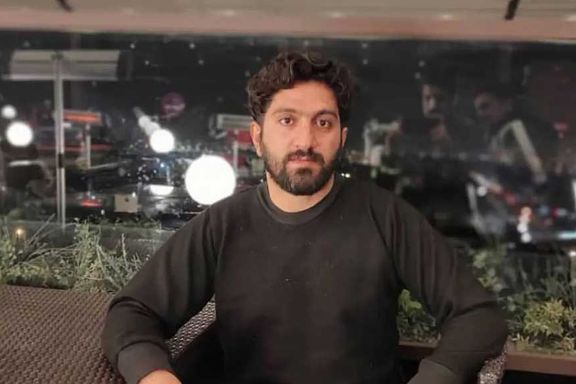Concerns Grow Over Iranian Protester Awaiting Execution

Political figures and activists continue to fight the threat of execution facing Reza Rasaei, a detainee involved in last year's nationwide protests in Iran.

Political figures and activists continue to fight the threat of execution facing Reza Rasaei, a detainee involved in last year's nationwide protests in Iran.
Reza Rasaei, who comes from the marginalized Kurdish and Yarsan minorities in Iran, was sentenced to death on October 7 on trumped-up charges of killing a Revolutionary Guards agent.
The victim was identified as Nader Beirami, head of the Intelligence of the Revolutionary Guards in Sanandaj by the Iranian state media. Rasaei vigorously denies any involvement.
Dadban, a group of pro-bono Iranian lawyers dedicated to the defense of political prisoners and activists, reported in October that Beirami was killed in a clash between security forces and protesters during the commemoration of the death of a prominent Yarsan figure.
Known also as Ahl-e Haqq, the Yarsan faith is one of the earliest Middle Eastern religious traditions. It has an estimated three million followers in Iran, primarily in the western Kurdish areas.
The Yarsan community has encountered numerous challenges, including difficulties in registering their children as Yarsan at birth, restrictions on building places of worship, and the constant fear of persecution.
The security authorities attributed Beirami's murder to Rasaei without providing any evidence, witnesses, or documents, as reported by human rights organizations such as Dadban and Hengaw.
Following Rasaei's trial in the second branch of the Kermanshah Province Criminal Court, Amnesty International issued a warning regarding his imminent execution.
The international human rights organization noted that during interrogations Rasaei was subjected to torture and other ill-treatment, including electric shocks and severe beatings to compel his forced “confessions”.
Australian parliamentarian Keith Wolahan, said in a tweet on Saturday that they have not “forgotten him or the cause he stands for”.
“I have seen Amnesty International alerts about imminent political executions by the Islamic Republic of Iran. Reza Rasaei is one of them,” he wrote on X.
Amidst the Israel-Hamas war, Iran has executed at least 229 people since October 7 alone, according to The Telegraph, including women and minors, as the government's execution spree continues unabated.
Iran's Special Rapporteur on Human Rights in December described the level of killings, torture, and brutality committed against minorities as “shocking.”
Javaid Rehman revealed at an event in London on December 9 that more than half of the people who were killed throughout the "Woman, Life, Freedom" protests were from Baluch and Kurdish provinces.
The Iranian government executes more people each year than any other nation except China, according to Amnesty International.
According to a report in November by Norway-based Iran Human Rights, 604 people have been executed in the first ten months of the year, the highest number in eight years, including mass executions.
In 2022, the rights group recorded 582 executions, with the highest recent records being 972 in 2015.